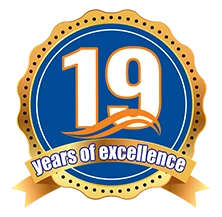B.A. vs. B.Sc. How to Choose the Right Path After 12th
For many years, BA course and B.Sc. degrees have been well-liked professional alternatives outside of engineering and the medical sciences. A BA course concentrates on the liberal arts, creative thinking, and theoretical studies, whereas a B.Sc. emphasizes the science curriculum. The main distinctions between these two undergraduate programs will be discussed in this blog today, along with which degree would be best for you.
B.A vs. B.Sc: An Overview
| B.A vs. B.Sc: An Overview | ||
|---|---|---|
| Parameters | B.A | B.Sc |
| Focus | Humanities, social sciences, or liberal arts | Natural sciences, mathematics, and technical subjects. |
| Eligibility | Must have scored 50% in senior secondary school education or 10+2 from a recognised educational board; may require previous exposure to the English language and other humanities subjects | Must have scored 50% in senior secondary school education or 10+2 from a recognised educational board with exposure to mathematics and science like chemistry, and physics,Biology or Mathematics |
| Skills required | Writing,Critical thinking, communication, research, and others | Problem-solving, Quantitative skills, scientific methodology, and others |
B.A vs. B.Sc: Course Duration
Bothe the undergraduate programs whether it be B.A or B.Sc ,they have a course duration of 3 years,which are further segregated into 6 semesters
Read Also - BA Courses Details: Full Form, Admission, Fees, Syllabus, Entrance Exam, Top Colleges, Scope
B.A vs B.Sc: Course Curriculum
B.A programmes involve writing, reading, and analysis of texts, along with exposure to areas such as literature, history, and the arts. On the other hand, the B.Sc curriculum includes courses in mathematics, laboratory sciences, and technical subjects. These programmes emphasise research and experimentation.
The B.A course is an undergraduate programme that comes with varied specialisations as discussed below:
- Optional English, Psychology, Journalism,
- Sociology,
- Psychology, Communicative English, Human Resource, Management & Employee Relations,
- Psychology,
- Economics,
- Journalism and Mass Communication
- Economics and Public Policy,
Similarly, the B.Sc is also an undergraduate programme that offers specialisations in different areas, such as:
- Animation
- Microbiology, Biotechnology (CMBt)
- Gaming
- Forensic Science with Certified Fraud Examiner, USA + CSOFS, UK
- Biochemistry, Genetics and Biotechnology (BcGBt)
- Digital Filmmaking
- Data Science and Analytics Integrated with the Institute of Analytics (IoA-UK)
- Computer Science,
Let us understand the core subjects taught in each discipline:
Core Subjects in B.A Curriculum
- English Language
- Core Courses in Major (e.g., Tourism Economics, Public Finance, Advertising, Public Relations, and others)
- Humanities (e.g., Philosophy, History, Literature, Art History)
- Social Sciences (viz., Psychology, Journalism, Economics, Political Science)
- Skill Enhancement Courses
- Foreign Language (in some cases)
- Internship or Projects
Core Subjects in B.Sc. Curriculum
Biochemistry, Genetics and Biotechnology (BcGBt)
- Gaming
- Animation
- Digital Filmmaking
- Chemistry, Microbiology, Biotechnology (CMBt)
- Forensic Science
- Data Science and Analytics Integrated with the Institute of Analytics (IoA-UK)
- Computational Biology
- Forensic Science with Certified Fraud Examiner, USA + CSOFS, UK
- Marine Sciences
- Computer Science, Physics, and Mathematics with certification in Artificial Intelligence and Machine Learning (AIML) and Cybersecurity
- Interior Design
- Skill Enhancement Courses
- Internship or Projects
B.A vs. B.Sc: Career Opportunities
- Graduates with a B.A. can look into jobs in the arts, politics, social work, counseling, marketing, media, and education. A B.Sc. graduate, on the other hand, can work in the healthcare industry, science, technology, engineering, mathematics (collectively known as STEM), and related professions. Let's examine a few of the lucrative job openings in each field:
- Employment Opportunities with a B.A. After graduating, you can look into teaching or educational positions, particularly in social studies, history, or English. Additionally, there is a steady need for people with good communication and writing abilities, as well as understanding of social work and counseling. The top professions one can pursue after earning a B.A. are listed below:
- Teacher: Teachers work in colleges, universities, and schools. They are able to instruct students in language, geography, history, and physical education.
- Journalist: Reporters, writers, and editors of news and information for various media outlets are journalists. Newspapers, magazines, radio stations, and television stations frequently use them to produce and report news items.
- Public Relations Specialist: To manage their public image, deal with media relations, and advertise their goods and services, firms and enterprises need public relations specialists.
- Social Worker: Social workers offer assistance and services in a variety of contexts, including the criminal justice system, child and family services organizations, schools, mental health and drug rehab centers, and healthcare and social services.
- Human Resources executive /officer : Human Resources Specialists are responsible generalist profile or part of human resource like as a recruitment specialist, or as a trainer or as an organization development personnel etc. or even handling employee relations of an organization.
Read Also - BBA vs BCA Which Course is Best: Eligibility Criteria, Career, Fees, Duration, and Salary
Career Prospects with B.Sc
For technical positions, B.Sc. program graduates are highly sought after in fields including technology, healthcare, engineering, and data science. You might also look for jobs in forensics, biotechnology, and other similar disciplines. The best career paths in this field that you can take after graduation are as follows:
- Forensic Scientist: To assist law enforcement in criminal investigations, forensic scientists examine tangible evidence.
- Biotechnologist: In the realm of biotechnology, including genetic engineering and medicines, biotechnologists carry out research and create new products and procedures.
- Marine Biologist: Marine biologists study ecosystems, marine species, and how human activity affects the oceans.
- 3D Animator: These professionals provide visual effects and three-dimensional animations for motion pictures, video games, and simulations.
- Interior Designer: Interior designers create and plan the interiors of residences, workplaces, dining establishments, and other settings.
B.A vs. B.Sc: Final Thoughts
There are plenty of prospects for job progression across several industries with both B.A. and B.Sc. degrees, regardless of specialization. A B.A. degree is the best option for a career in the liberal arts, nevertheless, if you have the creative thinking and artistic freedom to pursue such a vocation.
A B.Sc. course degree, on the other hand, is the ideal career choice if you want to acquire both core and applied science disciplines and are interested in honing your critical thinking and problem-solving abilities. Since there is an equal need for qualified graduates in all fields, students' interests and cognitive capacities ultimately determine which career path is best for them. Therefore, one must carefully assess their abilities and passion before making a final decision."
Why Choose Mangalayatan University Aligarh for BA and BSc Course Admission?
A Bachelor of Arts (B.A.) or Bachelor of Science (B.Sc.) degree from Mangalayatan University,which is the top University in Uttar Pradesh and can be a wise choice for a number of reasons. With courses approved by the UGC, the university upholds excellent academic standards. It provides arts and science programs that are in line with industry standards and are revised frequently to remain current.
The faculty of Mangalayatan is extremely skilled and knowledgeable, and they take a student-centered approach by fusing traditional instruction with real-world knowledge. Research opportunities, internships, and workshops for skill development are all essential components of the program. A sizable student body from all over the world has always been drawn to well-developed employment and placement prospects.With a solid ethical and cultural base, Mangalayatan encourages a comprehensive education that integrates learning, morals, and individual growth.





